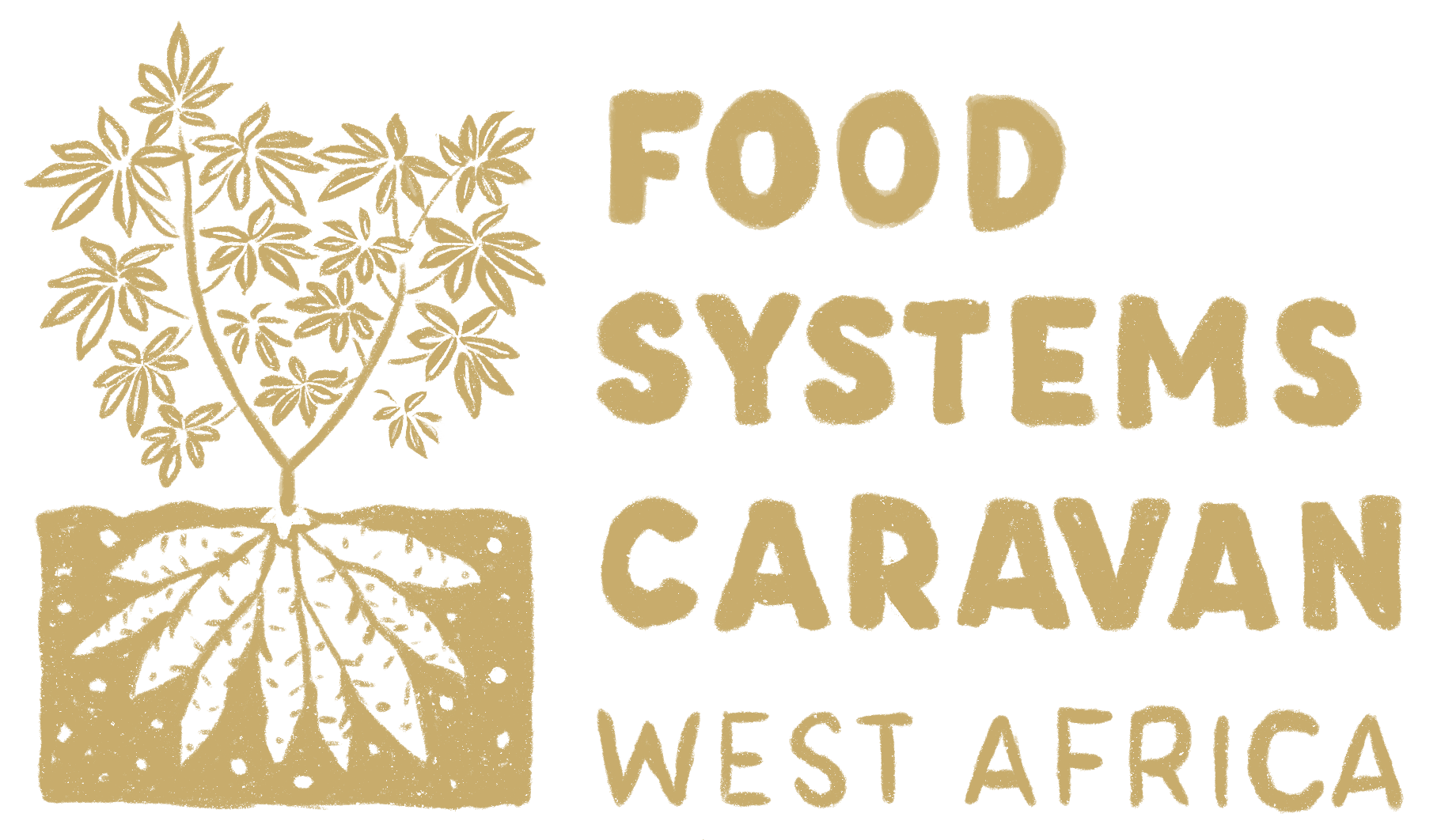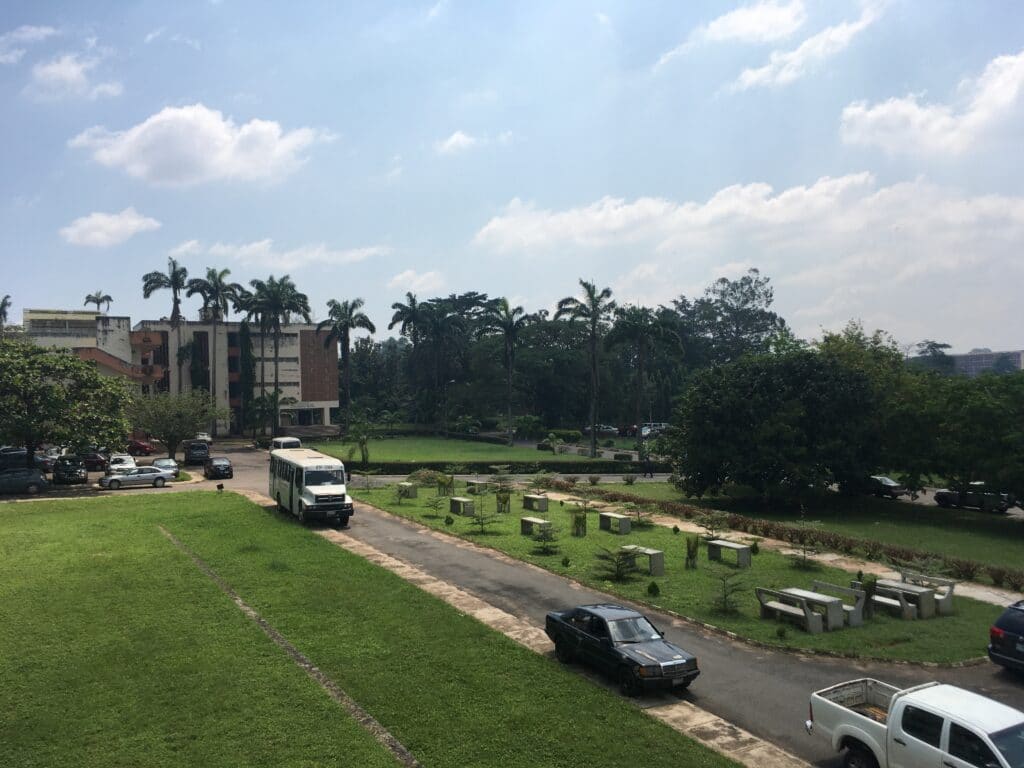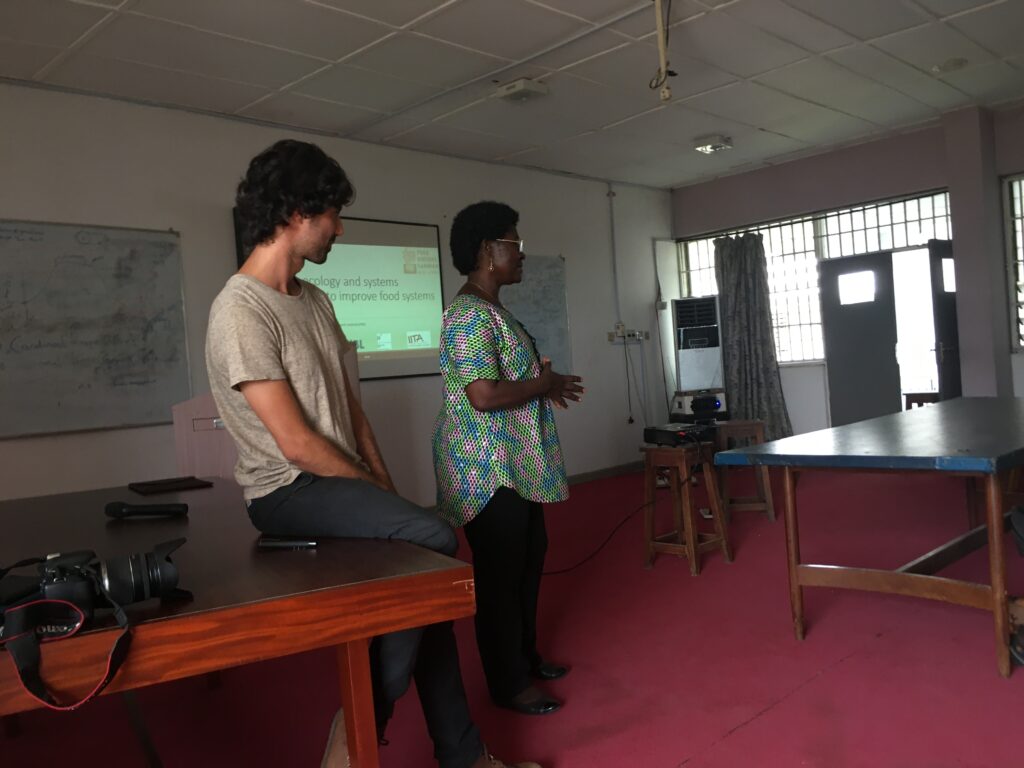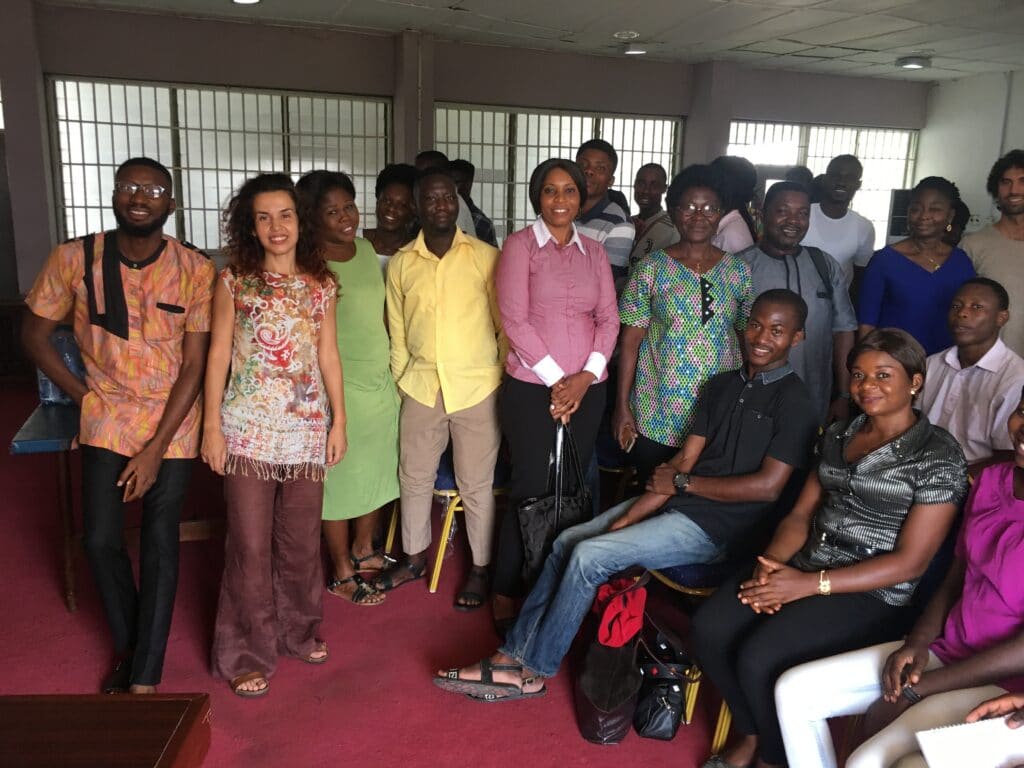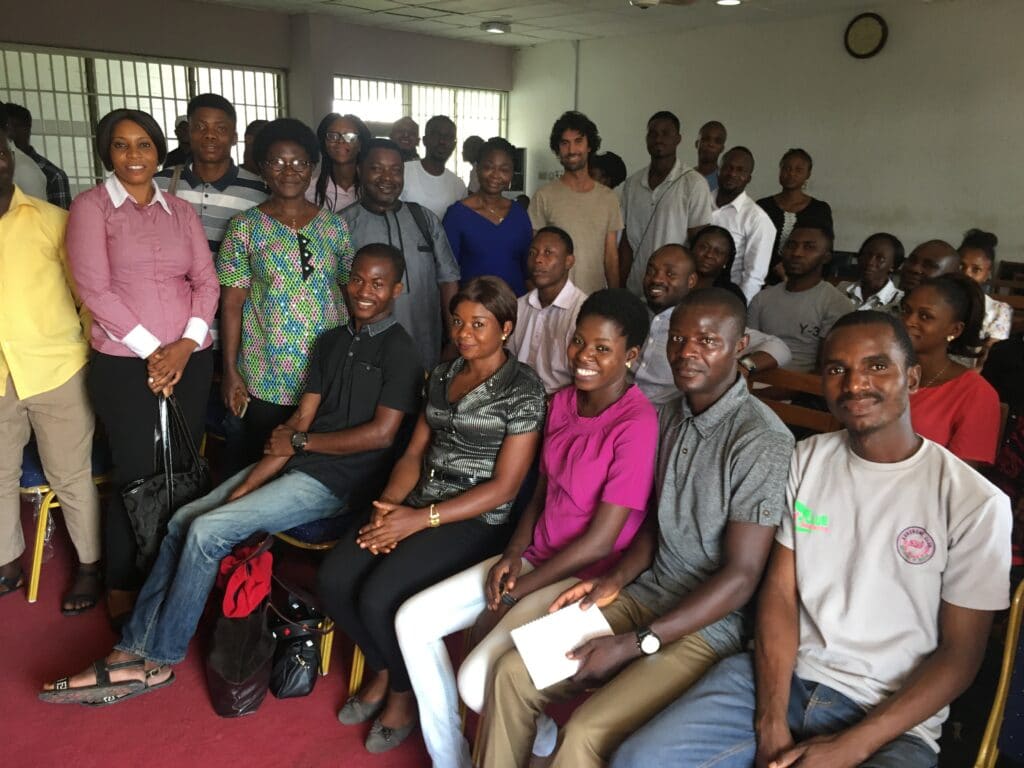[Français ci-dessous] Around 30 students from the Lead City International School in Jericho, Ibadan, participated in the open class organized by the caravan team, along with two of their teachers. The presentations focused on the need of changing our food systems and making them more sustainable through the application of agroecological principles and taking into account the protection of biodiversity, soil and water cycles. During the interaction with students at the end, they have asked some questions related with the use of chemicals in agriculture, food hygiene, climate change and biodiversity.
In the afternoon, the team gave an open class at the University of Ibadan, which was attended by around 35 students, mostly from the faculty of agriculture. The class focused on the sustainability of food systems, but also on practical examples of agroforestry and regenerative soil management practices. The presentations were followed by a debate with the audience, with the students engaging on a discussion about best practices to render food systems more sustainable, such as organic fertilization, agroforestry practices and organic pest control.
Environ 30 élèves de l’école internationale Lead City de Jéricho, à Ibadan, ont participé à la classe ouverte organisée par l’équipe de la caravane, ainsi que deux de leurs enseignants. Les présentations ont porté sur la nécessité de changer nos systèmes alimentaires et de les rendre plus durables par l’application de principes agroécologiques et la prise en compte de la protection de la biodiversité, des sols et des cycles de l’eau. Lors de l’interaction avec les élèves à la fin, ils ont posé quelques questions liées à l’utilisation des produits chimiques dans l’agriculture, à l’hygiène alimentaire, au changement climatique et à la biodiversité.
Dans l’après-midi, l’équipe a donné un cours ouvert à l’Université d’Ibadan, auquel ont assisté environ 35 étudiants, pour la plupart de la faculté d’agriculture. La classe s’est concentrée sur la durabilité des systèmes alimentaires, mais aussi sur des exemples pratiques d’agroforesterie et de pratiques de gestion régénératrice des sols. Les présentations ont été suivies d’un débat avec le public, les étudiants s’étant engagés dans une discussion sur les meilleures pratiques pour rendre les systèmes alimentaires plus durables, telles que la fertilisation organique, les pratiques agroforestières et la lutte biologique contre les parasites.
